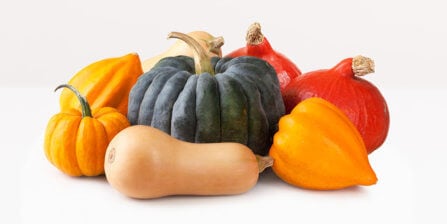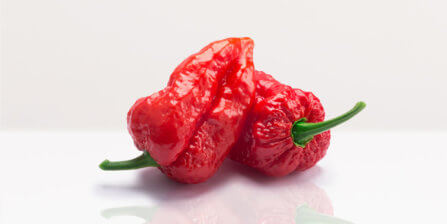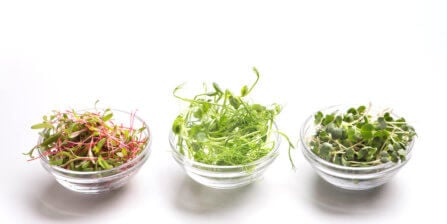Grocery Guides
Chives – All You Need to Know | Instacart Guide to Fresh Produce

What are chives?
People often confuse chives with green onions. So what are chives?
Chives are an herb related to onions and garlic. It’s got green stems and a mild flavor. It’s typically used fresh in foods like soups, dips, dressings, and as a garnish. You’ll also find chives in egg and potato-based dishes.
Chives are a part of the allium family, which means they’re related to leeks, scallions, onions, and garlic. Chives have been used in Asia and Europe for hundreds of years, but they can be found all over the world.
Fresh chives are long, thin, and hollow. The stems resemble a green straw.
What is the difference between chives and green onions?
People sometimes mix up chives and green onions (probably because they’re from the same family of vegetables, and they look somewhat similar). But they have distinct differences.
For example, chives stems are long and skinnier than green onions. Green onions (also called scallions) have a thicker stem that’s green toward the top and white at the bottom. Green onions have tender green leaves and stringy white roots. They’re long, thin, and mostly hollow, just like chives. However, green onions aren’t as mild as chives. Green onions are usually used as a garnish or in salads, but they’re also used for stir frys and cooked dishes.
Where did chives originate from?
Chives grow in the wild in the Americas as well as Africa, Asia, and Europe. They are also used as an ingredient in tvong, a type of soft cheese eaten in Poland and Russia.
What are the benefits of eating chives?
Chives are packed with plenty of nutrients. Eating them can contribute to better health because they can:
- Improve heart health
- Boost immunity
- Improve your vision
- Improve digestion
- Promote healthy skin
- Improve the quality of sleep
- Prevent congenital disabilities
- Detoxify your body
- Promote healthy bones
Now that you know how chives can help you maintain your health, including them in your diet is as easy as ordering fresh produce with Instacart. Skip the whole internet search for “chives near me” or “fresh produce near me.”
How are chives grown?
Chives grow best in the spring and fall. And if grown in colder climates, they’re usually seeded indoors 6 to 8 weeks before the last spring frost. Then, they’re transplanted outdoors.
If grown outdoors, seeds are sown as soon as the soil is workable in the spring. Seeds typically take a few weeks to germinate (and they germinate best between 60 and 70 degrees Fahrenheit).
Chives are best grown with plenty of sunlight, although a little bit of shade won’t hurt. The soil has to be fertile, moist, rich, and well-draining. However, before you start planting, try to incorporate 4 to 6in of well-composed organic matter. If possible, add some compost to the soil to a depth of 6 to 8in.
When planted, chive seeds are sown about 2in apart and no more than 1/4in deep and then covered with a thin layer of soil. After the seedlings sprout, they’re thinned out so that the plants are spaced between 4 to 6in apart in every direction.
When are chives in season?
Chives are in season in March, although chives are sold at most supermarkets all year round in the produce section. Sometimes they’re sold in bunches with the flowers still on them, but usually, they’re sold pre-cut in small plastic containers. Shop for fresh chive bunches now.
What should I look for when buying chives?
When buying chives, look for ones that are uniformly green, wispy, crisp, and with no signs of shriveling or browning/yellowing at the tips. Instacart customers can provide their shoppers with information in the app to help them choose the best chives while they’re shopping.
How to store chives
Fresh chives should be stored in the fridge and wrapped in a paper towel in a resealable plastic bag for up to one week. You can also stand the stems upright in a vase or jar in a plastic bag filled with a few inches of water. And don’t forget to wash them before you use them. Forgetting could mean making them rot faster.
Another way to store them is to freeze them whole after placing bundles into a stack in a plastic storage bag.
You can preserve the life of your fresh chives by creating a compound butter, wrapping the chives in wax paper, and then freezing them. You can slice them off as you need them. You also have the option of chopping them up and dumping them into an ice cube tray, filling it with water or oil, and freezing it.
How to tell if chives are bad
You’ll know your chives are bad if they give off an odor. If they do, throw them out immediately. Other signs of spoilage include a loss of color and a softer texture. Chives that have gone bad will lose their green color and won’t feel as firm as fresh chives. You’ll also notice that the overall appearance is off compared to when you first bought them.
What can I substitute for chives?
If you can’t find chives, you can substitute them with green onions. However, be careful when adding green onions to recipes because even though they’re mild, they have a stronger flavor than chives. That’s why it’s best to add them earlier in the cooking process if possible.
Choosing the right chives
Choosing the freshest chives is essential to creating an amazing-tasting dish. That’s why it’s important to know just what to look for when shopping for chives, such as the color, whether they’re giving off an odor, and how firm or soft they are. Don’t feel like going to the grocery store, but still need fresh chives? Get fresh produce delivered to your door using same-day delivery in the Instacart app.
Most Recent in Grocery Guides

Grocery Guides
Guide to Sustainable Grocery Delivery
Who has time for the grocery store these days? Between work, family and everything else, it feels like a chore we could all do without. That's where sustainable grocery delivery comes in! You get the…
Feb 7, 2025
Grocery Guides
19 Best Milk Substitutes for Baking and Cooking
Milk’s rich texture and neutral flavor make it a staple in countless recipes, bringing creaminess and balance to sweet and savory dishes alike. But what happens if you run out of milk or need a…
Jan 30, 2025
Grocery Guides
15 Best Cheeses for Your Next Charcuterie Board
Let’s face it: The heyday of the store-bought party platter is long gone. Now, the duties of a good host often include curating an impressive charcuterie board. But where do you begin? Charcuterie boards typically…
Jan 21, 2025

 Squash – All You Need to Know | Instacart Guide to Fresh Produce
Squash – All You Need to Know | Instacart Guide to Fresh Produce  Ghost Pepper – All You Need to Know | Instacart Guide to Fresh Produce
Ghost Pepper – All You Need to Know | Instacart Guide to Fresh Produce  Sprouts – All You Need to Know | Instacart Guide to Fresh Produce
Sprouts – All You Need to Know | Instacart Guide to Fresh Produce 

